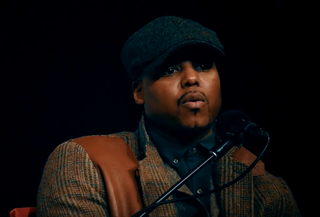A Quote by Marcel Proust
Time, which changes people, does not alter the image we have retained of them.
Related Quotes
There's an old saying that God made us in His image, and we've been trying to return the favor ever since. People often view God in a human image. This God changes His mind, gets upset, answers some prayers but not others, loves some people but not others. But even with that limited image, if we pray sincerely, we'll eventually realize that God is changeless. He's the same all the time because He's not in time-time is in Him.
The first thing Islam does is to destroy the self image of the believers. It convinces them that without Islam they are worthless creatures only fit for hellfire. It tells them that their culture is jahelyyah (ignorance) and their ancestral religion was taaghoti (satanic). They are made to despise their identity and selfhood and seek their glory in their submission to Islam and slavery to its deity who was Muhammad's own alter ego.
Stories are there to be told, and each story changes with the telling. Time changes them. Logic changes them. Grammar changes them. History changes them. Each story is shifted side-ways by each day that unfolds. Nothing ends. The only thing that matters, as Faulkner once put it, is the human heart in conflict with itself. At the heart of all this is the possibility, or desire, to create a piece of art that talks to the human instinct for recovery and joy.
Polaroid material has the most beautiful quality - the colors on one side, but then the magic moment in witnessing the image to appear. The time stands still and the act of watching the image develop can be shared with the people around you. In the fast world of today it's nice to slow down for a moment. At the same time Polaroid slows time, it also captures a moment which becomes the past so instantly that the decay of time is even more apparent - it gives the image a certain sentimentality or melancholy.
That's the nature of representation; every time we represent something we alter it and slightly change it. And so with that as my foundation, understanding that it's always fictional to some degree, I give myself a certain freedom to really explore and ask myself questions. What might not have been understood at that time? What might have been hidden at that time? What narrative in this particular image wasn't the primary image, but is really important? That is really interesting to me, and then I try to tease that out as much as I can.
I'm not saying that people shouldn't go out to football games and drink beer and have a good time, I do it myself. But, at the same time, people are so apathetic and that shows me that they don't care about themselves. They have no self-image. Their image is projected to them via the television and that is where they make decisions about who they are according to what the public says they ought to be.






































